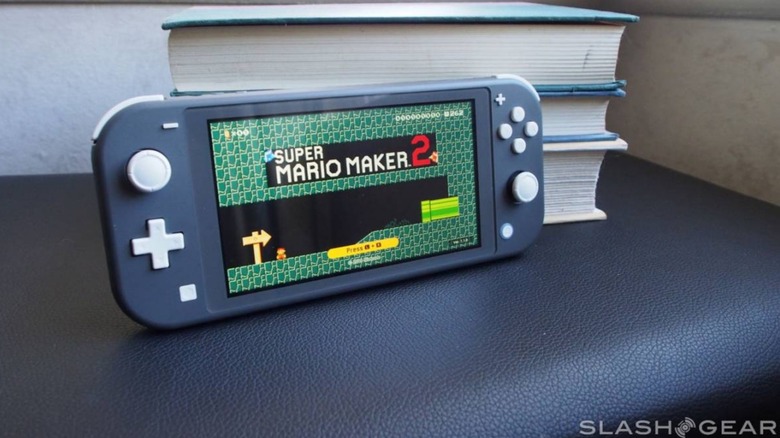What's Nintendo's Game Plan For The Next Generation?
2020 is going to be a big year for the games industry, because by the end of it, we'll be in a new console generation. Microsoft and Sony are both slated to release their new machines before the end of the year, kicking off what will be the ninth generation of video game consoles. Yet, while Sony and Microsoft are setting the stage for a grand battle, there's one other company that seems to simply be staying the course: Nintendo.
Sony and Microsoft have already detailed their new consoles – the PlayStation 5 and the Xbox Series X – to a certain extent, and each company is positioning their hardware as leaps and bounds better than what we currently have. What's Nintendo's game plan for the next generation, though?
To understand what Nintendo might do in the next generation, we should quickly recap this one first. The Wii U was the first console released in the eighth generation, beating both the PlayStation 4 and the Xbox One to market by a year. On the other side of that coin, it was also the first console of the generation to be discontinued, with Nintendo pulling the plug on the failing console in 2017.
Sometimes, a console manufacturer discontinuing a console early is a sign that they're going to exit the console market – Sega, after all, discontinued the Dreamcast just a few years into sixth generation and transitioned to only being a software manufacturer after that. Of course, Nintendo is no Sega, and it wound up replacing the Wii U with the Nintendo Switch mid-cycle.
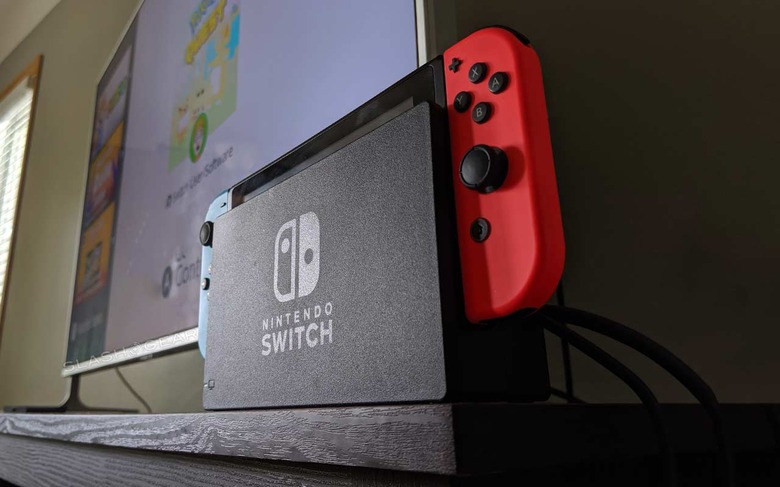
Any way you want to slice it, the Switch has been a smashing success for Nintendo. In its most recent financial report, Nintendo said that Switch sales currently sit at 52.48 million units worldwide, which is no small task for a console that isn't even three years old yet. Assuming Nintendo can keep this momentum up, the Switch is poised to become of the best-selling consoles of all time.
This generational shift we're about to experience may have a negative effect on that momentum, and that's something Nintendo should consider as it determines how to proceed. The Switch already ranks behind the Xbox One and PlayStation 4 in terms of power, and with an even larger gap between the power of the Switch and the power of these new consoles, will gamers start to pay less attention to the Switch?
I think Nintendo losing some its audience to these new consoles, at least temporarily, is inevitable. Do I think that the shift in attention is going to be large enough to sink the Switch? No, but I do think that there's a certain amount of risk to just maintaining the course it's currently on and expecting that the Switch is immune to competition from the PlayStation 5 and Xbox Series X.
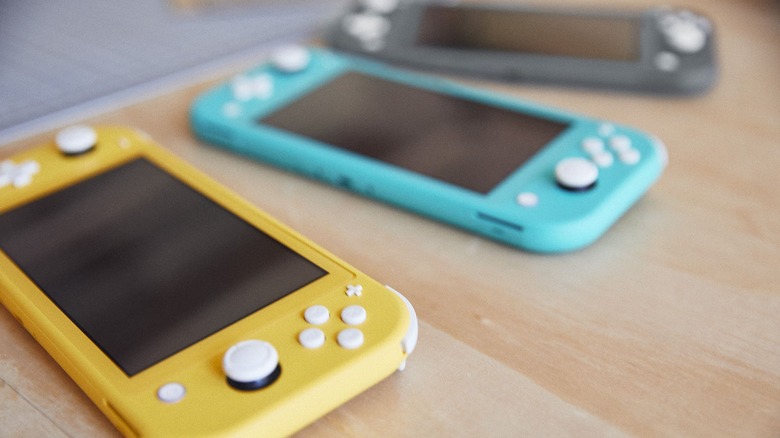
Whether Nintendo wants to admit it or not, Sony and Microsoft are competitors. Nintendo is fond of saying that it doesn't concern itself with what other players in the space are doing, but that indifference toward Sony and Microsoft could cost it some sales. So, what can Nintendo do to maintain interest in the Switch at a time when new hardware from two companies is landing?
As much as I enjoy the Switch in its current iteration, I do think there's something to the idea that Nintendo could launch a "Switch Pro." For years now, rumors have been claiming that Nintendo is plotting to release a new Switch model that's more advanced than what we have now. Commonly referred to as the Switch Pro, we've heard that this new console could offer everything from a higher-resolution display to a more capable processor to a longer-lasting battery.
READ MORE: Nintendo Switch Lite Review
Up until a certain point last year, rumors about the Switch Pro also referenced a smaller, handheld-only Switch console. Those rumors turned out to be true, with Nintendo launching the Switch Lite in September. Nintendo's latest financials tell us that launching the Switch Lite was a good move for the company, so there could very be a market for a Switch Pro too.
Unfortunately for us, Nintendo has poured cold water on the rumors that claim a Switch Pro will be releasing this year. During its most recent earnings presentation, Nintendo laid it plain, saying "we have no plans to launch a new Nintendo Switch model during 2020."
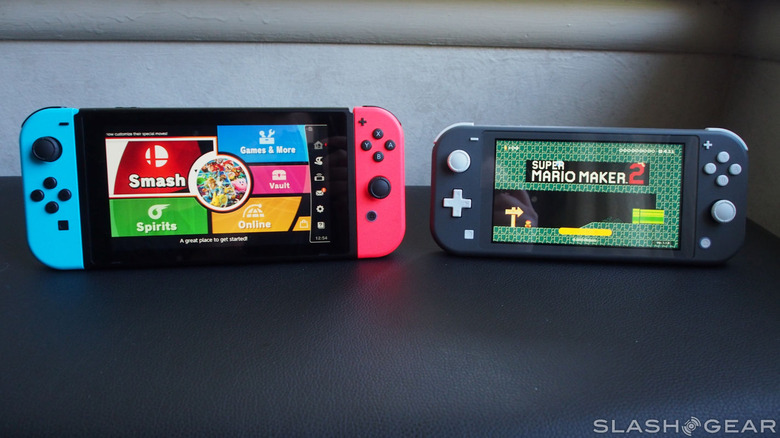
This, ultimately, means nothing. Nintendo could very well be plotting a new Switch for release at some point this year, but if it isn't ready to be revealed, then Nintendo will simply deny it exists. Earlier in the presentation, Nintendo even said that it "is in the nature of our business to value surprise" in regards to "future development." In other words, if there is a Switch Pro, it certainly isn't getting a reveal during a presentation to investors.
Obviously, whether or not Nintendo is making a Switch Pro is something that no one knows at the moment, and given the company's history with the Switch, we probably won't get a reveal until a few months fore the console launches.
Mistakes with the Wii U notwithstanding, Nintendo isn't a stupid company. It should know that even though the Switch is currently a critical and commercial darling, attention like that can be fleeting, especially with new consoles from competitors on the horizon.
I would be very surprised to learn that Nintendo's plan for the beginning of the next generation involves only staying the course that it's currently on. Assuming neither Microsoft and Sony get up on stage and implode like the former did during the reveal of the Xbox One, there should be a lot of excitement heading into the launches of the Xbox Series X and PlayStation 5. Nintendo is going to want to do something to keep its existing player base and potential customers engaged.
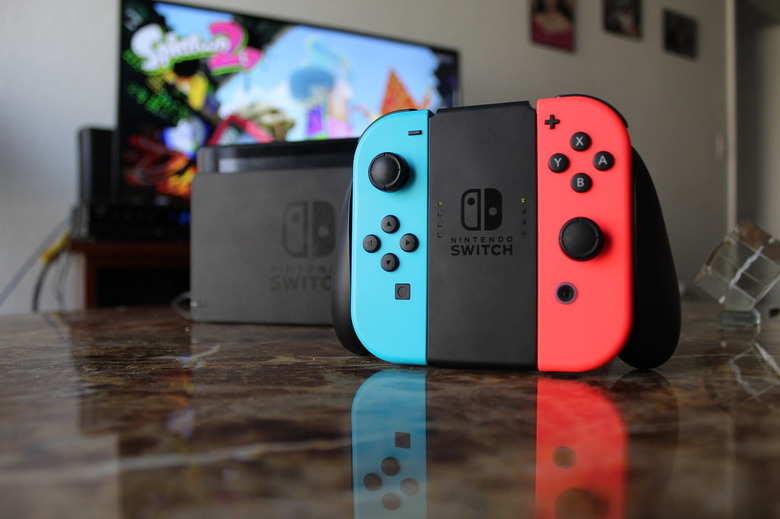
That's the beauty of this whole situation though: since Nintendo launched a new console in the middle of this generation's cycle, there's no way to tell what it's going to do in response to the PS5 and the Xbox Series X. Just as easily as it could be making a Switch Pro behind the scenes, it could also be determined to let the Switch stand on its own merits. Maybe instead of launching a new model, Nintendo will instead just keep tapping its major franchises for Switch releases?
We are in uncharted territory at the moment, at least as far as Nintendo is concerned. Its decision to can the Wii U and launch the Switch mid-cycle means that its console lifespans don't match those of its competitors, so what it will do at the dawn of the next generation is up in the air.
While I'm looking forward to learning more about the PlayStation 5 and the Xbox Series X, I'm also going to be watching Nintendo as we barrel toward the new generation. Its status as a wild card will make it a company to keep tabs on, because it'll be interesting to see how it responds to more powerful hardware from its competitors – if it does at all.
